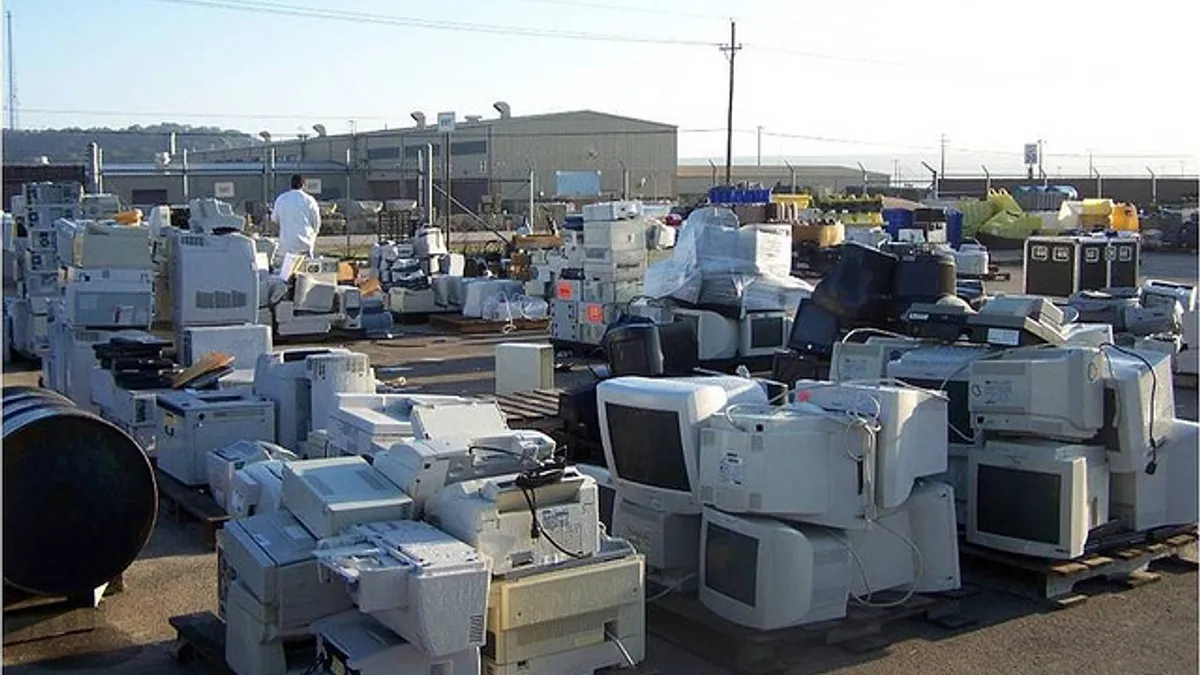Dive Brief:
- In a report from Greenpeace, Amazon, Google, Microsoft and Samsung all received low grades in the area of resource consumption. Fairphone received the highest grade, followed by Dell, HP, Apple and Lenovo. The organization also released a detailed report card, broken down into categories and sub-categories, explaining how it assigned rankings.
- Greenpeace said the most common reasons for short-lived electronics include fragile materials, non-standard parts that require special tools to repair, and batteries that can't be replaced. The report also called on companies to be more transparent about where materials come from and how much recycled material they use in their electronics.
- Notably, the section on resource consumption also calls on tech manufacturers to "incorporate recyclability into product design" and close the loop. Once a person chooses to upgrade his or her phone, for example, they would return it to the company so the the material could be recycled for use in new phones. Closing the loop on electronics would reduce the amount of hazardous e-waste that streams around the globe and reduce demand for virgin material, according to Greenpeace.
Dive Insight:
Earlier in the year, Greenpeace and iFixit published a report that showed around 70% of electronic devices they assessed had batteries which were "impossible or difficult" to replace. Beyond costing consumers more money and leading to greater material usage, batteries that can't be repaired or replaced can enter the waste stream, causing a real risk to industry employees if those batteries catch fire or explode.
In 2015 alone, U.S. consumers purchased 1 billion new electronic devices and a report from the National Center for Electronics Recycling found that there are about 12 electronic devices for every U.S. resident. Many of the components in these devices are obtained through destructive mining practices and may not be easily recovered in a network of disparate state recycling programs.
While some agencies are making e-waste collections and recycling a regular part of waste pickup, and some companies are selling devices specially made with recycled material — like Samsung — these efforts alone may not be enough. There is a limited amount of material available to manufacture the technology in smartphones, computers and tablets, so closing the loop will eventually be necessary for electronics production to continue. Companies such as Apple have begun talking about this as a priority, but many of them are still opposed "right to repair" legislation that would make it easier to fix or refurbish devices instead of throwing them out or buying new ones.














